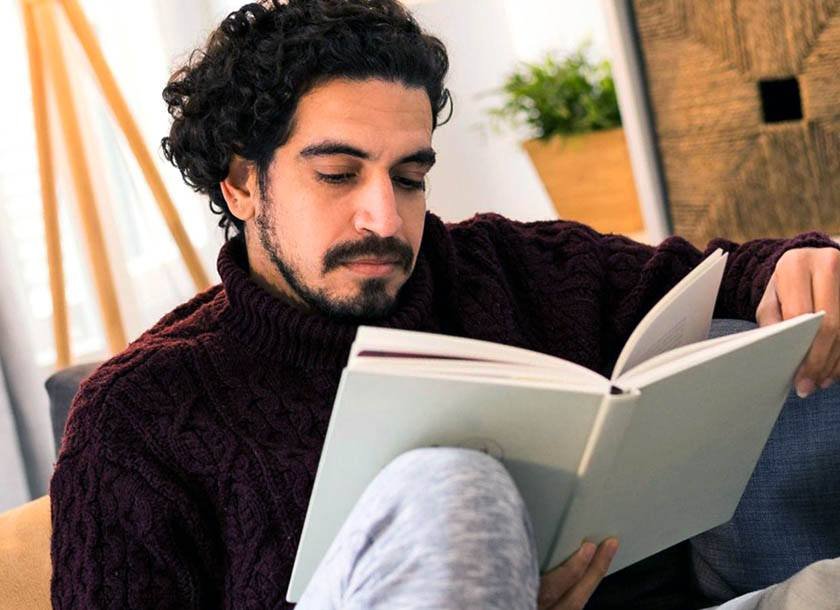Learning Portuguese presents numerous opportunities, ranging from enhancing travel experiences to improving career prospects.
Whether one is attracted to the rich cultures of Brazil and Portugal or seeks to connect with Portuguese-speaking individuals, discovering the best way to learn Portuguese can be profoundly rewarding.
This article examines effective methods for learning Portuguese, including immersion programs, language exchanges, and online courses.
Additionally, it provides guidance on selecting the most suitable approach and offers strategies for learning quickly and effectively. For those prepared to embark on their Portuguese journey, this article serves as a comprehensive resource.
Why Learn Portuguese?
Acquiring proficiency in Portuguese presents a multitude of opportunities, enriching travel experiences in Portuguese-speaking countries and promoting cultural immersion.
As one of the most widely spoken languages in the world, mastering Portuguese can substantially broaden one’s cultural understanding and enhance career prospects, making it a valuable asset in one’s linguistic repertoire.
Whether one is attracted to the vibrancy of Brazilian music or the historical depth of Portugal, learning Portuguese can significantly enhance personal and professional experiences in a variety of ways.
What Are the Best Methods to Learn Portuguese?
Identifying effective methods for learning Portuguese is essential for mastering the language and achieving specific learning objectives. Options are abundant, ranging from immersive learning environments that facilitate real-life conversations with native speakers to structured online courses and private tutoring sessions.
Furthermore, self-study materials, including books and multimedia resources, can greatly enhance vocabulary and grammar skills, offering a comprehensive approach to language acquisition.
Immersion Programs
Immersion programs offer an exceptional opportunity for individuals seeking to learn Portuguese, as they facilitate an environment rich in both language and cultural context.
These programs aim to enhance language retention by placing learners in real-life situations where they can practice speaking with native speakers, thereby improving their comprehension and confidence.
This immersive approach not only advances conversational skills but also fosters a deeper understanding of the associated culture.
Participants benefit from invaluable exposure to the nuances and subtleties of the language, significantly enriching their educational experience. Engaging with locals cultivates connections that extend beyond basic vocabulary, allowing learners to experience authentic conversational dynamics.
Moreover, immersion programs typically incorporate community events and cultural activities, enabling students to explore local traditions, cuisine, and social norms. This holistic approach ultimately contributes to a greater appreciation of the language, making it the best way to learn Portuguese effectively.
By integrating language exchange opportunities with knowledgeable speakers, learners effectively reinforce their understanding of key phrases and idiomatic expressions, making the acquisition of Portuguese both enjoyable and memorable.
Language Exchange
Language exchange serves as an effective method for practicing Portuguese through social interaction with native speakers, fostering a mutually beneficial learning environment.
This approach not only allows learners to enhance their conversational skills but also facilitates cultural exchanges that enrich their understanding of idiomatic expressions and regional dialects.
By engaging in regular dialogues, learners can monitor their progress and gain invaluable insights into the subtleties of the language.
Participation in a language exchange enables individuals to expand their vocabulary in a contextual manner, as they acquire new terms and phrases directly from those who utilize them in daily conversation.
The real-life scenarios encountered during these exchanges clarify the complexities of regional accents and diverse speech patterns, enableing learners to communicate more naturally.
As learners connect with native speakers, they refine their linguistic abilities while simultaneously cultivating friendships that deepen their understanding of cultural contexts. This immersive experience ultimately nurtures confidence and fosters a genuine appreciation for the language, thereby enhancing overall fluency.
Online Courses
 Online courses have transformed the landscape of language learning by providing structured lessons that accommodate various learning styles and paces. These courses frequently incorporate interactive lessons, multimedia resources, and progress tracking tools, allowing learners to establish achievable goals.
Online courses have transformed the landscape of language learning by providing structured lessons that accommodate various learning styles and paces. These courses frequently incorporate interactive lessons, multimedia resources, and progress tracking tools, allowing learners to establish achievable goals.
With an abundance of platforms available, students can select from a range of effective learning techniques tailored to their individual requirements.
The best way to learn Portuguese is through online programs, which offer flexibility and enable learners to access materials at their convenience, making it easier to integrate language study into the schedules of busy individuals.
Engaging interactive lessons, including quizzes, games, and discussion forums, serve to reinforce comprehension and promote active participation.
This dynamic approach not only enhances motivation but also supports knowledge retention. Many platforms employ personalized learning pathways, adjusting difficulty levels based on individual performance and preferences, thereby ensuring a distinctive educational experience for each student.
Private Tutoring
Private tutoring provides a personalized learning experience, allowing students to address specific challenges in learning Portuguese while receiving targeted feedback from experienced language tutors.
This one-on-one approach facilitates tailored lessons that concentrate on essential areas such as pronunciation and grammar exercises, enabling learners to progress at their own pace and effectively achieve their learning objectives.
Moreover, this individualized attention assists in overcoming specific obstacles and fosters a deeper understanding of the language’s structure and cultural nuances.
Customized lesson plans can be adapted to various learning styles, accommodating those who excel with interactive activities as well as those who prefer more traditional resources.
The continuous feedback mechanisms employed by tutors enable learners to consistently track their progress, identify areas for improvement, and celebrate significant milestones.
Ultimately, this enriching environment not only cultivates proficiency in Portuguese but also instills confidence and motivation, encouraging learners to engage more actively in conversations.
Self-Study with Books and Resources
Self-study using books and resources represents a flexible and effective approach for individuals seeking to learn Portuguese independently. This method allows learners to concentrate on reading comprehension and vocabulary development at their own pace.
By allocating time to structured grammar exercises, individuals can significantly enhance their understanding of sentence structure and verb conjugations.
Engaging with a variety of reading materials not only enriches vocabulary but also introduces idiomatic expressions that are crucial for natural communication.
Incorporating writing tasks serves to reinforce newly acquired knowledge, as learners practice constructing sentences and paragraphs, thereby building fluency over time.
The best way to learn Portuguese is by employing effective study techniques, such as spaced repetition and setting specific learning objectives, which can enhance retention and foster consistent progress, making mastering the language both enjoyable and rewarding.
How to Choose the Best Method for You?
 Selecting the most effective method for learning Portuguese requires careful consideration of several factors, including individual learning styles, budget constraints, and time commitments.
Selecting the most effective method for learning Portuguese requires careful consideration of several factors, including individual learning styles, budget constraints, and time commitments.
Identifying whether one is primarily a visual, auditory, or kinesthetic learner can facilitate the selection of methodologies that align with personal preferences.
Moreover, establishing clear goals and assessing the available resources can optimize the learning process, ultimately leading to a more successful mastery of the language.
Consider Your Learning Style
Identifying one’s individual learning style is essential for selecting the most effective methods for learning Portuguese, whether through visual, auditory, or kinesthetic approaches.
Understanding these diverse learning strategies can significantly enhance the language acquisition process. For example, visual learners may benefit from the use of colorful flashcards, diagrams, or applications that present engaging images alongside vocabulary.
In contrast, those who favor auditory methods might achieve greater success by listening to podcasts, songs, or participating in discussions that expose them to native pronunciations and contextual applications of the language.
Kinesthetic learners, who often thrive on hands-on experiences, may find immersive language environments particularly beneficial, allowing them to practice speaking and writing through role-playing scenarios or interactive games.
By leveraging these unique learning styles, individuals can develop a personalized approach that makes the process of mastering Portuguese both enjoyable and effective.
Evaluate Your Budget and Time Commitment
Evaluating one’s budget and time commitment is critical when selecting the most suitable Portuguese learning method, as these factors significantly influence the resources available and the study plans that can be implemented.
Certain methods, such as private tutoring or immersion programs, may necessitate considerable financial and time investments, while self-study materials and online courses typically provide greater flexibility and lower costs.
A thorough assessment of these elements can facilitate the creation of a viable learning pathway. To determine the best way to learn Portuguese, it’s important to start by assessing your monthly discretionary expenses and available time, as these will help shape a realistic budget and guide your study plan.
This consideration encompasses not only initial costs but also long-term expenses, ensuring that a comprehensive resource aligns with one’s learning objectives.
A combination of structured lessons and independent study may prove to be an effective approach, balancing both efficacy and enjoyment, thereby ensuring that the journey toward fluency remains sustainable and rewarding.
Research Reviews and Success Stories
Researching reviews and success stories from other learners can provide valuable insights into the most effective methods for learning Portuguese, thereby enabling well-considered choices.
Whether testimonials are found on educational platforms or within online forums, understanding the experiences of others can aid in selecting appropriate learning resources and community classes that align with one’s objectives.
Leveraging the collective knowledge of those who have previously undertaken this journey can reveal strategies that may have been overlooked. Numerous learners frequently share unique tips or resources that have significantly expedited their progress, underscoring the importance of community feedback.
Engaging with various forums and social media groups can also expose newcomers to a range of perspectives on language acquisition, thereby enhancing their understanding.
By actively seeking out these insights, individuals can not only refine their approach but also cultivate a supportive network that enriches their learning journey.
What Are the Benefits of Learning Portuguese?
Acquiring proficiency in Portuguese presents a multitude of advantages, encompassing improved employment prospects, enriched travel experiences, and a deeper understanding of diverse cultures.
As the demand for bilingual professionals continues to increase, fluency in Portuguese can distinguish individuals in the job market, facilitating opportunities across various sectors.
Furthermore, effective communication while traveling in Portuguese-speaking countries enables immersive experiences that extend beyond superficial interactions, thereby enhancing one’s appreciation of local cultures.
Opens Up Job Opportunities
Fluency in Portuguese can significantly enhance job opportunities, particularly in sectors that prioritize bilingualism and strong language proficiency.
In industries such as tourism, hospitality, and international trade, the ability to communicate fluently in Portuguese positions candidates as valuable assets, particularly when engaging with clients from Lusophone countries.
In the healthcare sector, professionals proficient in Portuguese are better equipped to address the needs of diverse patient populations, which enhances their attractiveness in the workforce.
In finance and marketing, individuals with this language proficiency are highly sought after for their ability to navigate and foster relationships with rapidly growing Portuguese-speaking markets.
This proficiency not only enhances one’s resume but also cultivates a deeper understanding of cultural nuances, rendering candidates even more appealing to potential employers.
Enhances Travel Experiences
Proficiency in Portuguese significantly enhances travel experiences in countries such as Brazil and Portugal, and the best way to learn Portuguese is by immersing yourself in the language, allowing for a deeper connection with the culture and a more authentic travel experience beyond typical tourist attractions.
Engaging in meaningful conversations with locals not only deepens one’s understanding of the culture but also aids in effectively navigating various situations. Travel tips become increasingly beneficial when one can communicate in the native language, resulting in memorable and authentic experiences.
By mastering the language, travelers gain valuable insights into local customs, traditions, and the everyday lives of those they encounter. This ability to converse opens access to hidden gems – authentic restaurants, local markets, and unique festivals that are frequently overlooked by the average tourist.
Furthermore, the nuances of the language allow for deeper connections, as sharing stories and laughter across language barriers fosters a sense of camaraderie. Ultimately, understanding Portuguese cultivates friendships and enables travelers to experience the true essence of their destination, making their journeys truly unforgettable.
Expands Cultural Understanding
Learning Portuguese not only provides valuable language skills but also enhances cultural understanding, enabling individuals to appreciate the rich linguistic diversity and nuances of Portuguese-speaking cultures.
By examining the cultural contexts and idiomatic expressions unique to each region, learners gain insights into traditions, music, and art that broaden their perspectives. This deeper understanding cultivates empathy and fosters connections with others.
Each variant of Portuguese, from Brazilian Portuguese with its vibrant rhythms and colorful slang to European Portuguese, which is steeped in history, offers distinct perspectives on daily life and social interactions.
These regional variations illuminate how communities express their identities through folklore, celebrations, and cuisine.
Exploring idiomatic phrases reveals the embedded humor, wisdom, and values within the language, allowing learners to navigate social nuances with enhanced proficiency.
Ultimately, this journey through language serves as a bridge to understanding the complexities of human experience across diverse cultures.
What Are Some Tips for Learning Portuguese Quickly?
To enhance the process of learning Portuguese, it is vital to adopt effective strategies that encourage consistent practice and immersive experiences.
Engaging in daily activities, such as conversation exercises, utilizing multimedia resources, or participating in structured lessons, significantly reinforces language retention and fosters confidence in one’s abilities.
Moreover, implementing engagement strategies can render the learning experience both enjoyable and effective, thereby ensuring steady progress towards achieving fluency.
Practice Consistently
Consistent practice is essential for mastering Portuguese, as it reinforces language retention and builds confidence. By committing to daily practice – whether through conversation exercises, grammar drills, or vocabulary enhancement – learners can effectively internalize the language.
Establishing a study routine ensures that language learning becomes an integral component of daily life. This commitment to routine facilitates the development of effective learning strategies, enabling individuals to track their progress and identify areas for improvement.
Integrating a variety of materials, such as podcasts, books, or mobile applications, is the best way to learn Portuguese, as it can significantly enhance the learning experience and make practice more engaging.
By setting manageable goals for each study session, learners can maintain motivation and continually challenge themselves. Ultimately, embracing these habits not only fosters language acquisition but also cultivates a deeper appreciation for Portuguese culture and its nuances.
Immerse Yourself in the Language
Immersing oneself in the Portuguese language represents one of the most effective methods for rapid learning, as it facilitates real-life conversations and authentic cultural immersion. Surrounding oneself with Portuguese media – such as music, films, or podcasts – enhances listening skills and pronunciation.
Engaging in language exchange programs or participating in community classes provides valuable speaking practice within a supportive environment.
To further enrich the learning experience, it is advisable to incorporate audio lessons that emphasize everyday vocabulary and conversational phrases.
Participating in cultural activities, such as preparing traditional dishes or attending local festivals, can also deepen the understanding of the contextual significance of the language.
For those who wish to expand their skills further, exploring literature or following Portuguese blogs can offer insights into contemporary culture, fostering a more comprehensive approach to language acquisition.
By integrating these diverse strategies, learners can develop a robust and enjoyable framework for effective language learning.
Find a Study Partner or Group
 Finding a study partner or joining a study group can significantly enhance the experience of learning Portuguese by fostering social interaction and mutual support.
Finding a study partner or joining a study group can significantly enhance the experience of learning Portuguese by fostering social interaction and mutual support.
Engaging with others provides opportunities for conversational practice, sharing insights, and offering constructive feedback on pronunciation and grammar.
Language exchange serves as an organic platform for immersing oneself in the nuances of the language, as participants often contribute their unique backgrounds and cultural perspectives to discussions. This diversity enriches the learning environment, making it both dynamic and stimulating.
Social dynamics are crucial in this context, as learners not only develop their linguistic skills but also build confidence through shared experiences.
Collaborative activities, such as role-playing or games, are the best way to learn Portuguese as they help facilitate deeper engagement and retention of vocabulary and grammatical structures.
Ultimately, by cultivating a sense of community, learners can motivate one another and address challenges collaboratively, leading to improved fluency and a more rewarding journey in mastering a new language.
Utilize Online Resources and Apps
The contemporary digital landscape provides a wide array of online resources and language applications specifically designed to facilitate the learning of Portuguese.
These platforms typically include interactive lessons, vocabulary quizzes, and pronunciation guides tailored to accommodate various learning styles. By utilizing these digital tools, learners can enhance their study experiences and access a rich repository of materials that promote effective language acquisition.
Many of these resources are designed with user-friendliness in mind, ensuring that even beginners can navigate them effortlessly. Options range from online forums where learners can engage in conversational practice to gamified applications that render studying both engaging and enjoyable.
Features such as real-time feedback and progress tracking enable individuals to identify their strengths and pinpoint areas requiring improvement.
For those seeking deeper immersion, virtual language exchanges and video tutorials enrich the learning experience by facilitating connections with native speakers and fostering a greater understanding of cultural nuances. Visit our FAQ section below for more answers.

